The eighteen towers of the Sagrada Familia are one of the most distinctive elements of Gaudí’s masterpiece and have become true icons of the city of Barcelona. Each tower represents a figure related to the Christian tradition, from Jesus Christ himself to the four evangelists. In this article, we invite you to learn more about them.
Book your skip-the-line guided tour
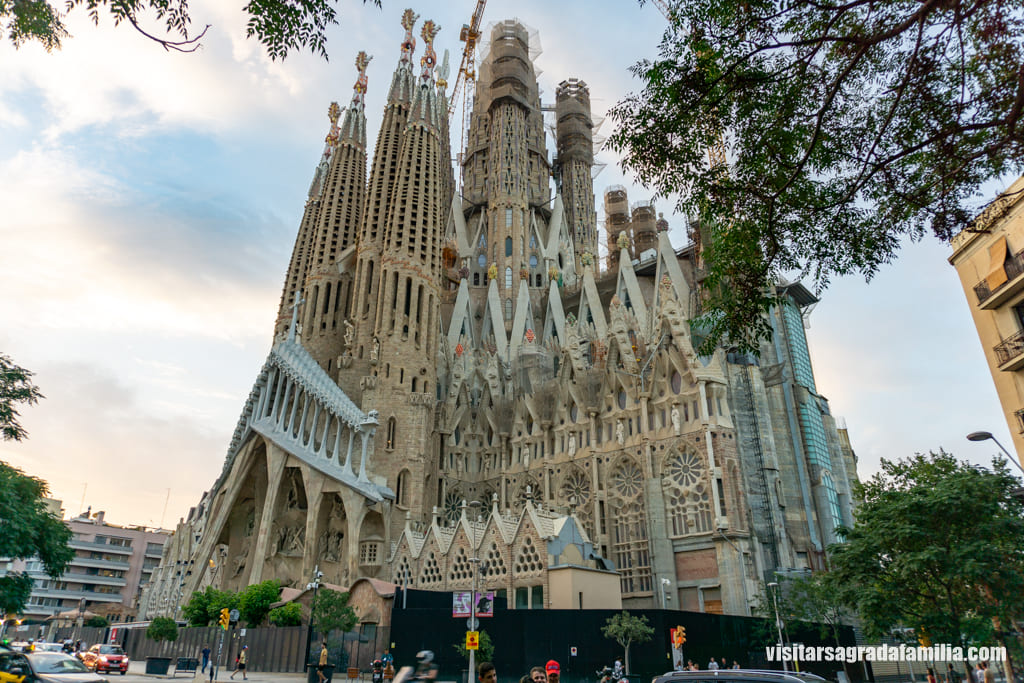
Table of Contents
- History of the Towers
- The 12 Apostles’ Towers
- The 4 Evangelists’ Towers
- The Virgin Mary Tower
- The Jesus Tower
- Climbing the Sagrada Familia Towers
Eighteen Towers to Tell a Story
The original plans that Gaudí presented before construction began in 1882 included the construction of eighteen towers grouped into different families to honor some of the most important figures of the New Testament.
With these towers, the architect sought to follow the example of great builders of the past, who used every element of their religious buildings to spread the word of God, whether subtly or explicitly.
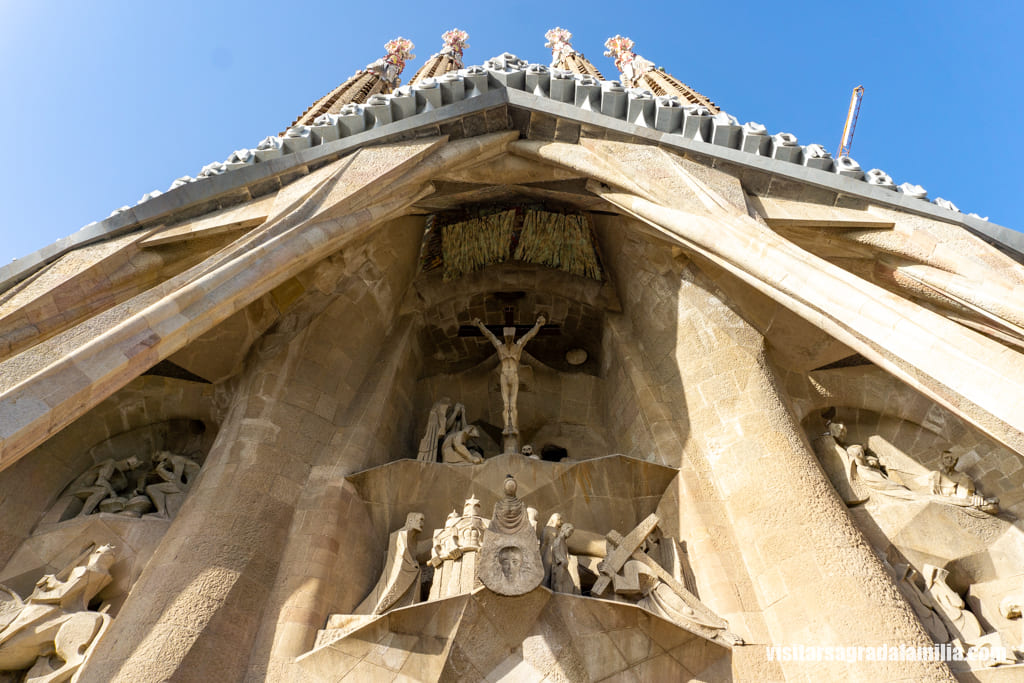
From an artistic and cultural perspective, we can distinguish four different groups: the Apostles’ Towers, the Evangelists’ Towers, the Virgin Mary Tower, and the Jesus Tower. When this last one is completed and inaugurated in 2026, we will be one step away from closing the long history of the Sagrada Familia.
Currently, only thirteen of them have been completed, but it is already easy to imagine how the temple will look once the scaffolding and cranes are permanently removed. If you’re wondering whether you can enjoy them from a special perspective, today the Sagrada Familia allows access to one of its two towers open to the public, as we explain at the end of this article.
The 12 Towers of Apostles
The height of the Sagrada Familia’s towers dedicated to the twelve apostles ranges between 112 and 98 meters, depending on whether they are positioned centrally or on the sides of the Nativity or Passion facades.
The first set represents the early years of Jesus’ life. Their shapes are visually appealing, with many depictions of animals and symbols such as the Tree of Life.
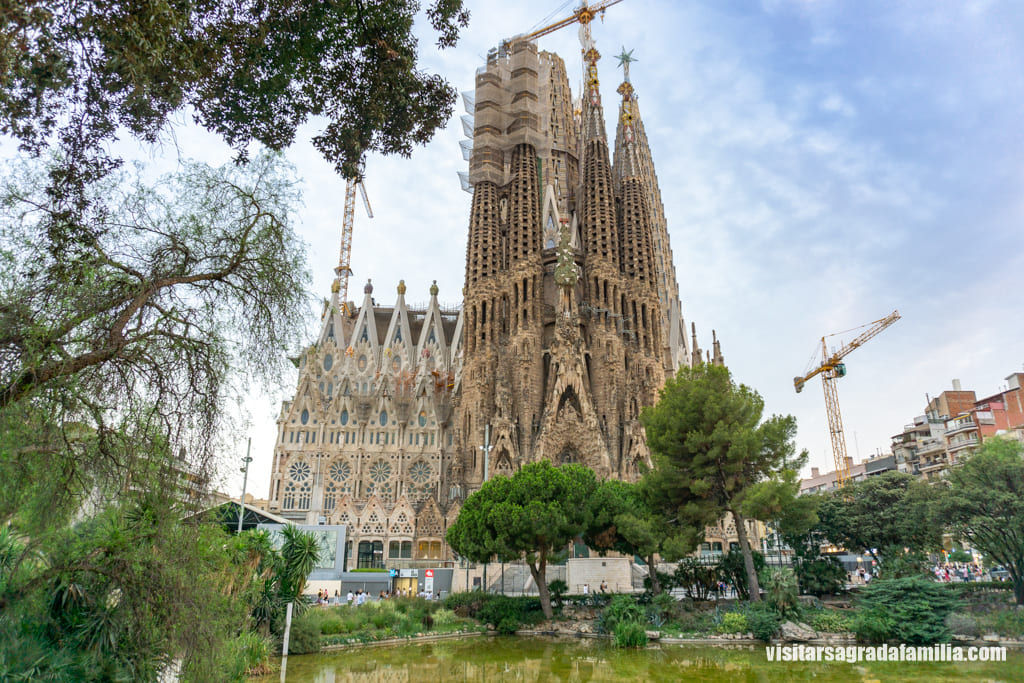
The Passion Facade, on the other hand, focuses on Christ’s death and resurrection. When visiting this area, you will notice that the forms are more rigid and aggressive, as the designer wanted to convey the complex episodes of loneliness and fear that Jesus experienced.
These towers are dedicated to the apostles who accompanied Jesus. However, not all twelve apostles are actually represented: two of them, Luke and Mark, are symbolized by two more significant towers—the Evangelists’ Towers. Additionally, Gaudí chose not to include Judas Iscariot.
Who do the remaining three towers represent, then? Saint Barnabas, Saint Matthias, and Saint Paul—three great figures who continued the doctrine of the first apostles.
The 4 Towers of the Evangelists
These four towers surround the great Jesus Tower. They are dedicated to the evangelists Mark, Luke, Matthew, and John and are topped with representative symbols: a lion, an ox, an angel, and an eagle.
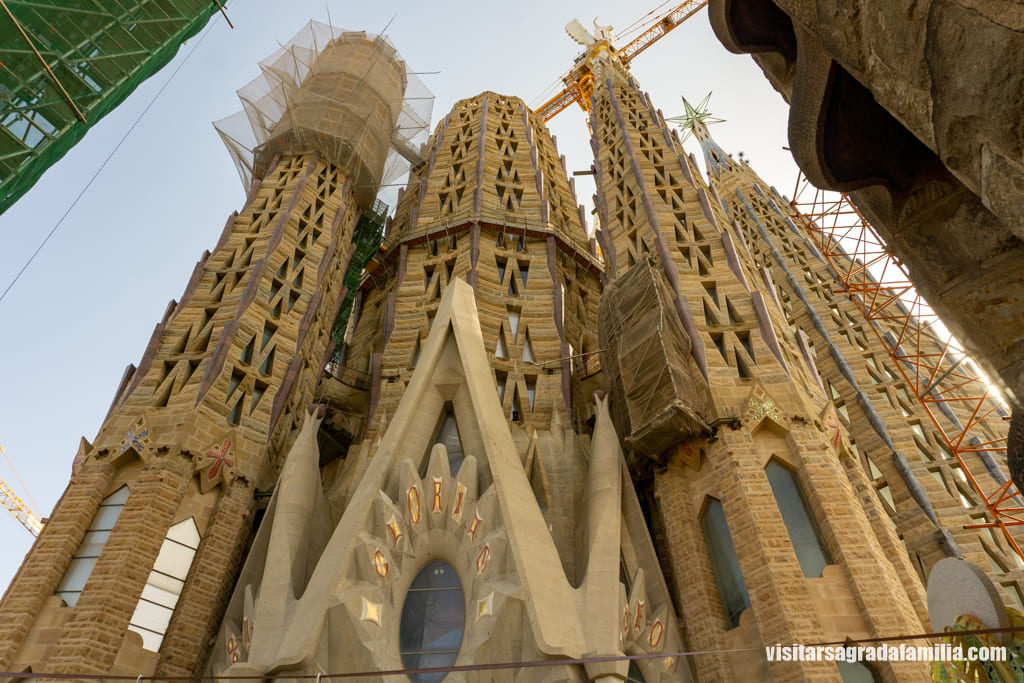
Those wondering about the height of these towers should know that they stand at 135 meters. All were completed in 2023 and were inaugurated with an exterior lighting display.
The Virgin Mary Tower
The second most important tower of the Sagrada Familia is dedicated to the mother of Jesus. Completed as well, it stands three meters taller than the Evangelists’ Towers, reaching a total height of 138 meters.
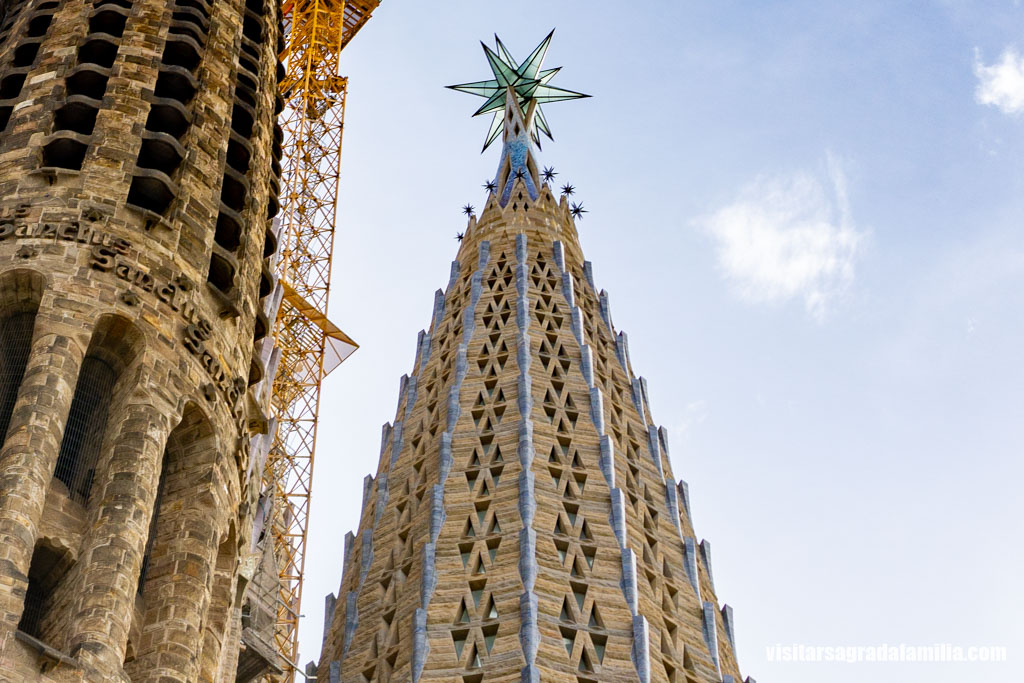
The most striking feature of this structure is its twelve-pointed star, which lights up every night with a bright white light of hope, visible from miles away.
Skip the Lines at the Sagrada Familia
Get your Sagrada Familia tickets in advance and skip the endless lines at the entrance.
The Jesus Tower
The Jesus Tower is the true centerpiece of Gaudí’s project: 172.5 meters of stone that will make the cathedral the tallest building in Barcelona and the tallest Catholic church in the world.
Interestingly, Gaudí chose this height so that the tower would remain half a meter below Montjuïc mountain’s peak, believing that man’s work should not surpass God’s creation.
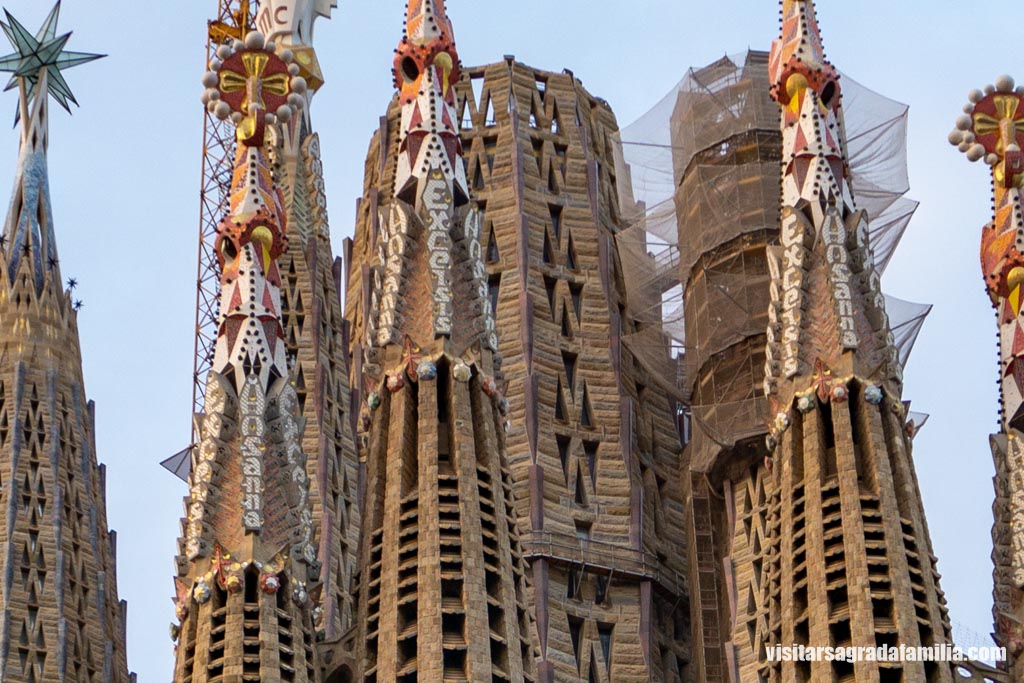
A massive four-armed cross will crown it, and it will be open for visits once construction is completed.